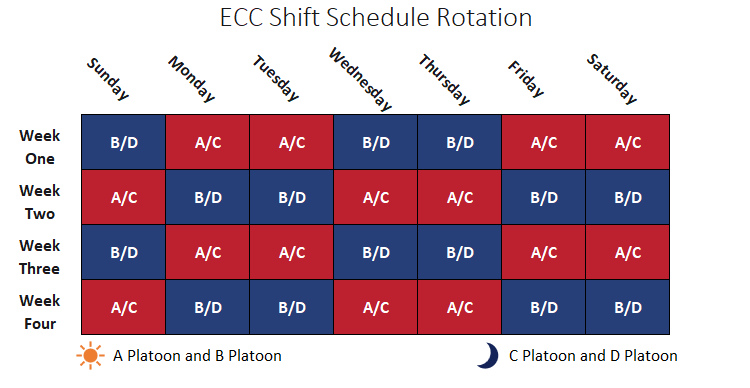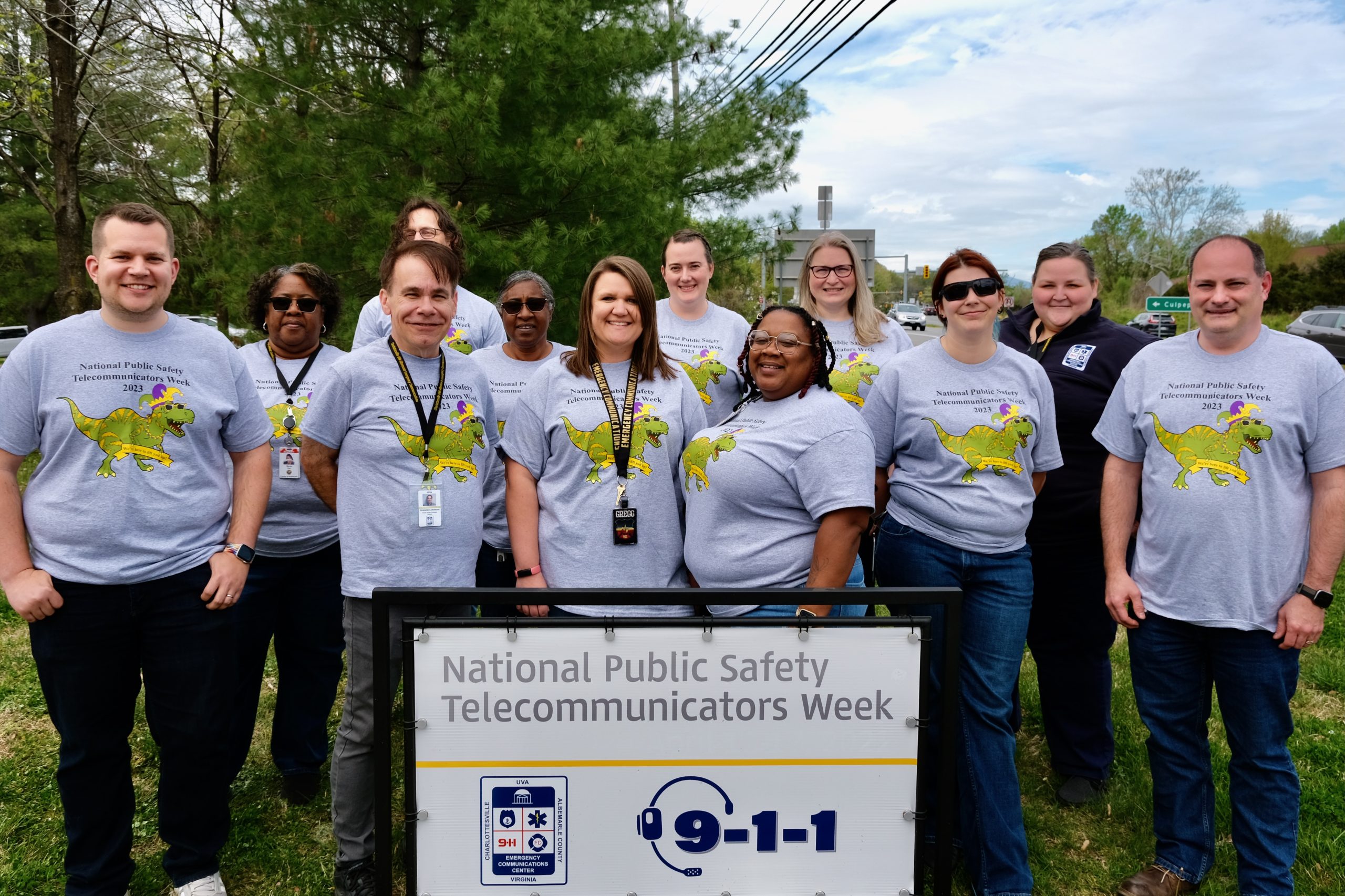Apply
Interested applicants can see openings on this page and click the job title to apply online.
Public Safety Communications Supervisor
Applications accepted through Friday, July 25, 2025.
Public Safety Communications Officer
Applications currently closed. Check back in December 2025 to apply for our next new hire academy.
Benefits
The ECC is proud to offer a wide array of excellent and affordable benefit options to our eligible employees. From medical insurance to long-term disability coverage, our group and voluntary benefits programs are designed to give you peace of mind – whatever comes your way! Details can be found here.
Compensation
Our compensation program aims to attract, retain, and reward a highly qualified workforce to serve our community. Our starting pay for Public Safety Communications Officer with no prior experience is approximately $51,979 (PSCO I, Step 0) for a full-time position working 2184 hours/yr.
See below for details on additional earning opportunities, including prior years of service credit for lateral transfers, education stipends, and shift differential.
Questions?
Additional details about working at the ECC are available below – including an overview of our (paid!) training and our shift schedules.
If you have any questions not covered on this page, please call 434.365.4761 — we’d love to speak with you.
Hiring Timeline and Process
The total length of time from application-to-hire for a Public Safety Communications Officer varies, depending on the next available training academy, but is typically no shorter than four weeks.
After submitting your application online:
- Complete computer-based skills testing (CritiCall – typing speed and data entry)
- Complete a phone interview
- Successfully complete a panel interview
- Optional but encouraged: Complete a “sit-along” to observe center operations
- Contingent offer extended
After receiving and accepting your offer of employment:
- Complete fingerprinting and background investigation.
- Complete medical and psychological examinations.
- Successfully complete a 12-week basic academy, a 3-week period of working directly alongside a Communication Training Officer, and a period of mentoring/on-the-job training for skill mastery. All training is paid.
Pay Scales and Stipends
We have guidelines and policies for administering pay within the organization: the Public Safety Pay Scale for our Public Safety Communication Officers and Public Safety Communication Supervisors, and the Classified Pay Scale for all other positions.
- Employees are placed based on skills, knowledge, and their prior years of experience. Lateral transfers are available.
- Shift differentials are paid for evening (5%) and overnight (6%) hours.
- Education stipend provided — $1,000 annually for Public Safety Pay Scale employees with an Associate’s degree, and $2,000 annually for a Bachelor’s degree.
- Additional stipends of up to $3,000 annually are provided for Communication Training Officers (CTO) and career development program participants.
Shift Schedules
Our full-time Public Safety Communications Officers and Supervisors are assigned to one of our four platoons (two daylight, two midnight). Daylight platoons work from 0700 to 1900 (7am to 7pm), and midnight platoons work from 1900 to 0700 (7pm to 7am). We use a modified Pitman schedule which follows a two-week rotation and allows for every other weekend off, as illustrated in the graphic below.

Requirements and Disqualifiers
- Must be at least 18 years of age
- Must have a minimum of a high school diploma or GED
- Must pass an extensive background investigation, including a medical (hearing) exam, drug screening, and psychological assessment
- Must be a US citizen or legally authorized to work in the United States
- Must either possess or obtain a Virginia driver’s license
- Prior felony or misdemeanor conviction will be evaluated on a case-by-case basis
Training
The Training Division’s Mission Statement is to engage, educate, and empower recruits from all backgrounds to develop knowledge, confidence, and competency to promote safety, health, and well-being in service to our communities as a valued team member and Public Safety Communications Officer.
From the first day, we engage with our new co-workers and empower for success as a valued member of our agency. Communications Officer Recruits are educated through an in-house academy comprised of 480 hours or 12 weeks of classroom training that covers:
- Basic communications
- Agency policy and procedures
- Stress management
- Computer Aided Dispatch (CAD)
- Phone procedures
- Geography
- Priority Dispatch Emergency Medical Dispatch certification
- Priority Dispatch Emergency Fire Dispatch certification
- Priority Dispatch Emergency Police Dispatch certification
- VCIN/NCIC certification
- CPR certification
Included in the academy phase are two weeks spent on the communications floor with a certified training officer. During this time, recruits will begin answering emergency and non-emergency calls. Once this period of OTJ (on the job) training has occurred, the recruit will return to the classroom for additional skill building and classroom academy curriculum. Utilizing this phased training approached is formatted to build confidence in newly acquired skills.
Our academy is just the beginning of training. After classroom completion, a recruit is assigned to a platoon and placed with a Certified Training Officer (CTO). This begins a 3-weeks of OTJ training. During this phase, recruits answer emergency and non-emergency calls while being monitored by their trainer and receiving a daily report of their performance. Upon successful completion, the recruit moves on to the mentoring phase. During mentoring, new call-takers are no longer continuously monitored but have an assigned mentor from whom they can seek assistance. During this phase, they receive weekly reports on progress and performance. When a recruit displays competence in their call-taking skills, they are released from the mentoring phase and work with their platoon under general supervision.
Charlottesville & Albemarle County
A great place to live and work
When you work for the Charlottesville-UVA-Albemarle ECC, you have the opportunity to serve and live in a thriving region, known and loved for its art, music, food, recreation, and rich history. Browse to visitcharlottesville.org to learn more!
